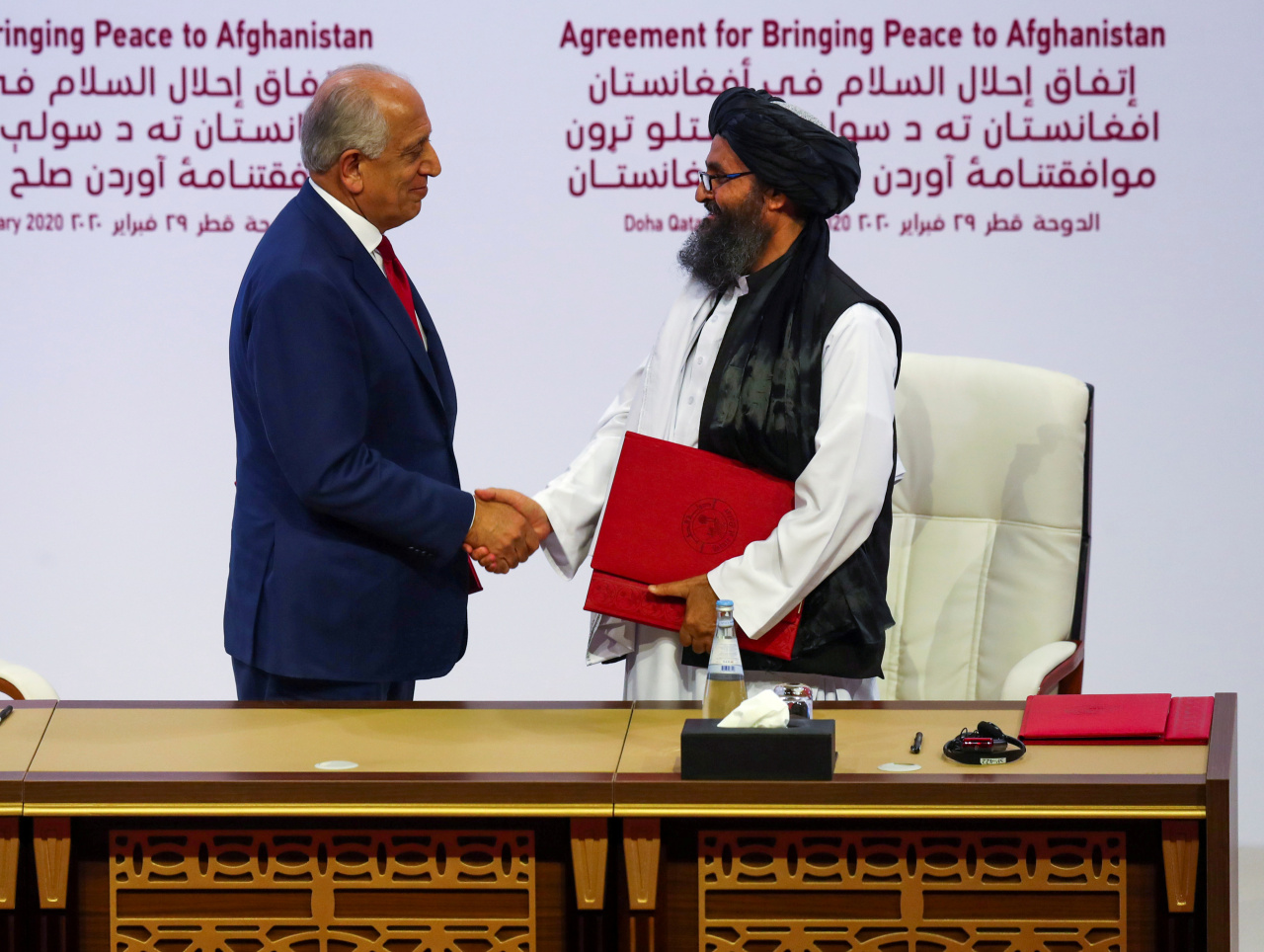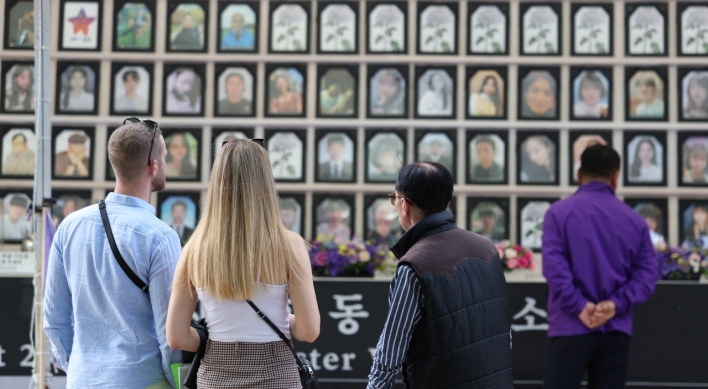US, Taliban sign deal to pull foreign forces from Afghanistan
By AFPPublished : March 1, 2020 - 09:31

DOHA (AFP) -- After nearly two decades of conflict that has ravaged Afghanistan's impoverished population, the United States and the Taliban signed an accord Saturday that Washington hopes will mark the beginning of the end of its longest war.
The pact signed in Doha would see the United States and foreign partner forces pull all their troops from Afghanistan within 14 months, provided the Taliban stick to pledges to open a dialogue with the Western-backed Kabul government and push back against jihadist groups including Al-Qaeda.
"The other side's tired of war. Everybody is tired of war. (It has) been a particularly long and gruesome one," US President Donald Trump said in Washington, welcoming the agreement.
"We've had tremendous success in Afghanistan, in the killing of terrorists, but it's time, after all these years, to go and to bring our people back home."
He said US troops would start to leave immediately, and added that he would meet soon with Taliban leaders.
Supporters of the deal, which was signed after more than a year of fractious talks, say it marks a critical first step toward peace.
But many Afghans fear it amounts to little more than a dressed-up surrender that will ultimately see the Taliban return to power.
"There is no doubt we have won the war... This (is) why they are signing a peace treaty," chief Taliban negotiator Abbas Stanikzai said.
Months of speculation about the deal culminated in a plush conference room in the Qatari capital, when Taliban fighter-turned-dealmaker Mullah Baradar signed the accord along with Washington's chief negotiator Zalmay Khalilzad.
The pair then shook hands, as people in the room shouted "Allahu Akbar" ("God is greatest").
At the signing, US Secretary of State Mike Pompeo alluded to uncertainty over the deal.
"Victory for Afghans will only be achieved when they can live in peace and prosper," he said.
Muted celebrations
The Taliban swept to power in 1996 with a hardline interpretation of Islamic sharia law, banning women from working, closing girls' schools, and forbidding music and other entertainment.
Since the US-led invasion that ousted them after the September 11, 2001 attacks, America has spent more than $1 trillion on fighting and rebuilding in the country.
About 2,400 US soldiers have been killed, along with tens of thousands of Afghan troops, civilians and Taliban fighters.
The Doha accord left many Afghans fretting that their relatively recent freedoms under the country's new constitution may be under threat.
Even the requirement for a "permanent and comprehensive ceasefire" was listed only as an agenda item -- not a precondition -- for future talks between Kabul and the Taliban, slated to begin March 10 in Oslo.
"Today is a dark day, and as I was watching the deal being signed, I had this bad feeling that it would result in their return to power rather than in peace," Afghan activist Zahra Hussaini, 28, told AFP.
In Kabul, small groups gathered in cafes to watch the signing, but reaction was muted.
Questions swirl around the position of the Afghan government, which was excluded from the direct US-Taliban talks.
The country is also engulfed in a political crisis after President Ashraf Ghani's main rival contested the results of last year's elections and has threatened to set up a rival administration.
Ghani welcomed the accord, saying that Afghans "have the political will and the capacity to make peace because of the resilience of our society, the dynamism of our economy and the capability of our state."
The signing followed a week-long partial truce to build confidence between the warring parties and show that the Taliban could control their fighters.
The United States, which currently has between 12,000 and 13,000 troops in Afghanistan, will draw that number down to 8,600 within 135 days of the signing.
If the Taliban abide by the terms of the accord, the United States and its partners "will complete the withdrawal of all remaining forces from Afghanistan" within 14 months, in a "conditions-based" pullback.
The two sides also agreed to swap thousands of prisoners.
'Important first step'
NATO Secretary General Jens Stoltenberg heralded the agreement as a "first step to lasting peace".
"We have to be prepared for setbacks, spoilers, there is no easy way to peace but this is an important first step," he said in Kabul.
Both Stoltenberg and Trump vowed that foreign forces could return to Afghanistan if necessary.
Ahead of the signing, the insurgents said they had halted all hostilities on February 22, only the second nationwide ceasefire in 19 years of warfare.
The Taliban's pledge to guarantee Afghanistan is never again used by jihadist movements such as Al-Qaeda and the Islamic State group to plot attacks abroad will be key to the deal's durability.
Its sheltering of Al-Qaeda was the main reason for the US invasion following the 9/11 attacks.
After being ousted in 2001, the Taliban re-emerged to lead a deadly insurgency against the new Western-backed government in Kabul.
After the NATO combat mission ended in December 2014, the bulk of Western forces withdrew, leaving Afghanistan in an increasingly precarious position. (AFP)
-
Articles by AFP







![[Music in drama] Rekindle a love that slipped through your fingers](http://res.heraldm.com/phpwas/restmb_idxmake.php?idx=644&simg=/content/image/2024/05/01/20240501050484_0.jpg&u=20240501151646)



![[New faces of Assembly] Architect behind ‘audacious initiative’ believes in denuclearized North Korea](http://res.heraldm.com/phpwas/restmb_idxmake.php?idx=644&simg=/content/image/2024/05/01/20240501050627_0.jpg&u=20240502093000)







